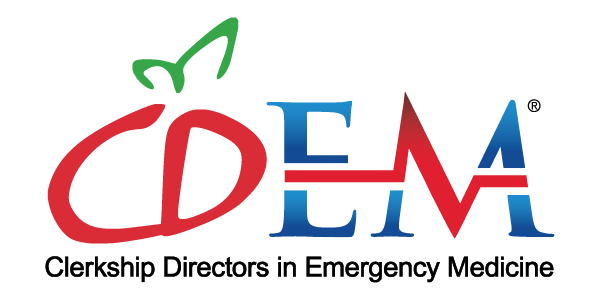Data-Gathering Skills
This chapter was reproduced from the Emergency Medicine Clerkship Primer, 2008, Chapter 8, with the permission of the Editor, for ease of viewing on mobile devices.
The at-times hectic world of the emergency department is an imperfect setting in which to rapidly diagnose and treat everyday injuries and potentially life-threatening conditions. A large part of the emergency physician’s job is gathering information from a wide variety of sources to construct an accurate picture of the patient’s clinical condition.
A detailed history is often the key to diagnosis. However, obtaining an adequate history in the emergency department can be challenging. Remember, at times medical information will have to be obtained from multiple sources. Keeping this in mind, you should always try to gather as much medical information as possible directly from the patient.
We are well aware that it can be difficult to elicit a clear and concise history of present illness from some patients. This can be related to an underlying or acute medical condition, a language barrier, or the patient’s level of formal education. However, it is important to resist the temptation to limit your data gathering because of an inability to obtain detailed information from your patient. Spending additional time with the patient to clarify certain details or to use other resources can be invaluable. Remember, think creatively and do not get frustrated. The case study presented here gives an example of when “thinking outside the box” can help you get potentially life-saving medical information that may have otherwise been difficult or impossible to obtain.
Case Study—Thinking Creatively A patient presents to the hospital with abdominal pain and vomiting for 3 days. He has a complicated medical history, including diabetes, hypertension, thyroid disease, and congestive heart failure. He does not recall the names of most of his medications and has never received medical care at your facility. Although this patient cannot recall the names of his medications, he likely knows the name and location of the pharmacy where he gets his prescriptions filled. Thinking out of the box, calling the pharmacy, and speaking with a pharmacist may provide valuable medical information that otherwise would have been difficult to obtain. |
The box on the next page contains a checklist of suggestions to consider when you are having difficulty getting a clear and concise medical history. Even when the patient is capable of providing a detailed and accurate history, it may be of help to verify certain aspects of the history with friends or family to make sure no key detail goes unaddressed. To ensure patient confidentiality, it is important that you get the patient’s permission before discussing any aspect of his or her medical history with friends or family.
Suggestions for Taking a Clear and Concise Medical History
|
Other commonly used alternative sources of historical information include the following:
- Nurses: Always read the triage nurse’s notes, and do not forget to look at the nursing record. You can also ask nurses for their initial impression. Nurses can tell you whether the patient was accompanied by family or friends who may be in the waiting room.
- Emergency medical service (EMS) personnel: It is always a good idea to talk with the EMS personnel. They can often provide key de-tails about the condition of the patient at the scene or treatment rendered by bystanders or other first responders. In addition, they may provide important details about social conditions that are valuable when attempting to make disposition decisions.
- Old medical records: Obtaining the old medical records for a patient can provide valuable information about the patient’s medical condition, especially if a patient is unable to provide a concise history. Medical records may confirm what a patient has already told you, add details that the patient does not recall, or clarify the results of previous diagnostic procedures.
Sometimes the history is just not available. The nature of emergency medicine is that we must develop management plans and intervene based, at times, on little or no information. Either we are unable to obtain a good history and will have to base our plan on other available information, physical exam, and diagnostic tests or the patient is in extremis and the time-sensitive nature of the presentation precludes the physician from obtaining a detailed history (e.g., gunshot wound to the chest). Remember, the goal of data gathering in the emergency department is to obtain the necessary information required to provide high-quality patient care. At times limited information can suffice, and other times more detailed information is needed to provide high-quality care.
